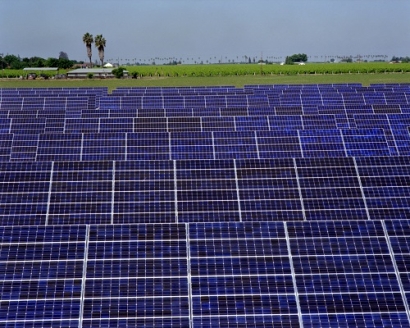
All of the arrays are scheduled to begin operation by June 2020. The buyers include Bartlett Electric Cooperative, Comanche Electric Cooperative, Heart of Texas Electric Cooperative, PenTex Energy and South Plains Electric Cooperative.
The projects will be developed, constructed, owned and operated by Canadian renewable energy developer Saturn Power Corporation, which will sell energy to the cooperatives through 20-year PPAs. Saturn Power has developed and contracted 200 MW of wind, solar and battery storage projects, and was selected through a competitive bidding process that Rocky Mountain Institute managed as the buyers’ representative.
The solar arrays for each of the buyers will be sited on the cooperatives’ distribution systems, thereby avoiding Electric Reliability Council of Texas (ERCOT) demand charges and generation capacity charges from their generation and transmission providers.
“Developing these solar energy installations makes a lot of sense for our members,” Bryan Lightfoot, general manager and CEO of Bartlett Electric Cooperative, said. “Not only will we be providing more clean, locally sourced energy to our community and hardening our grid, but we expect to save money over the life of these projects by becoming more self-sufficient.”
“We are very excited about this project and look forward to forging strong, long-term relationships with the electric cooperatives,” said Doug Wagner, president and CEO of Saturn Power. “Saturn Power continues to expand its reach in the US renewables market and we are proud to be able to help bring clean, affordable and renewable power to the residents of Texas.”
RMI is working with communities, utilities, corporate buyers and solar developers to build a more transparent, standardized approach to help expand market access for distribution-scale solar installations. The organization is also continually expanding its network to both raise awareness of the benefits of this technology, and to simplify the process to help stakeholders determine how distribution-scale solar can help lower electricity costs and bring more clean and resilient energy supply onto the grid.
“It has been a pleasure working with this group of dedicated cooperatives to develop a common understanding of the value that on-site solar generation can provide in the ERCOT market,” Jason Prince, a senior associate at RMI who helped coordinate the agreement, said.
In addition to its work in Texas, RMI has worked directly with electric cooperatives in Colorado, New Mexico and North Carolina, as well as communities in New York State, to develop distribution-scale solar installations for local residents.
Based on lessons from the procurement in Texas and past projects—including that cooperatives and other potential buyers lacked the necessary resources or capacity to run competitive procurement processes—RMI also has released its Solar Procurement Framework, a toolkit to connect interested parties with the resources needed to successfully develop 1–10 MW solar projects. The Solar Procurement Framework builds on existing resources to provide an easy-to-use, step-by-step guide for project development in the distribution-scale solar market.

